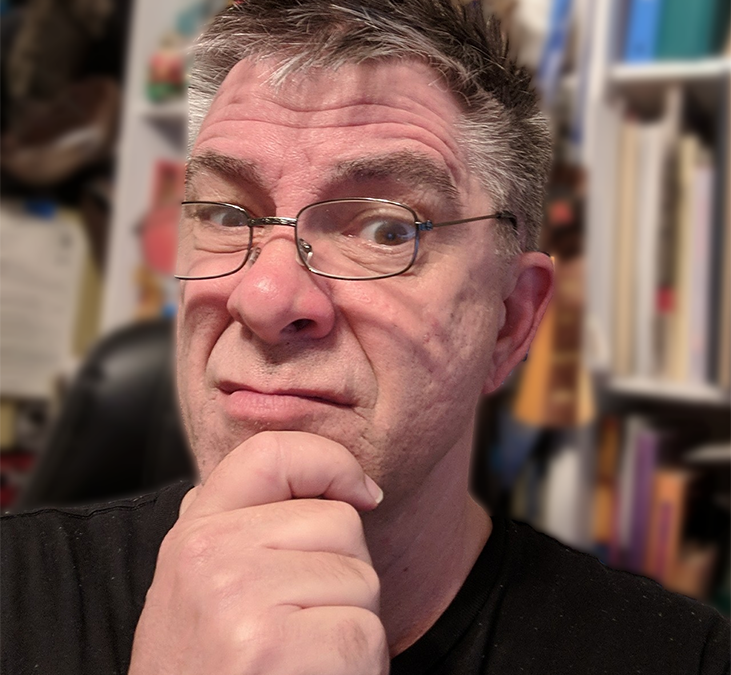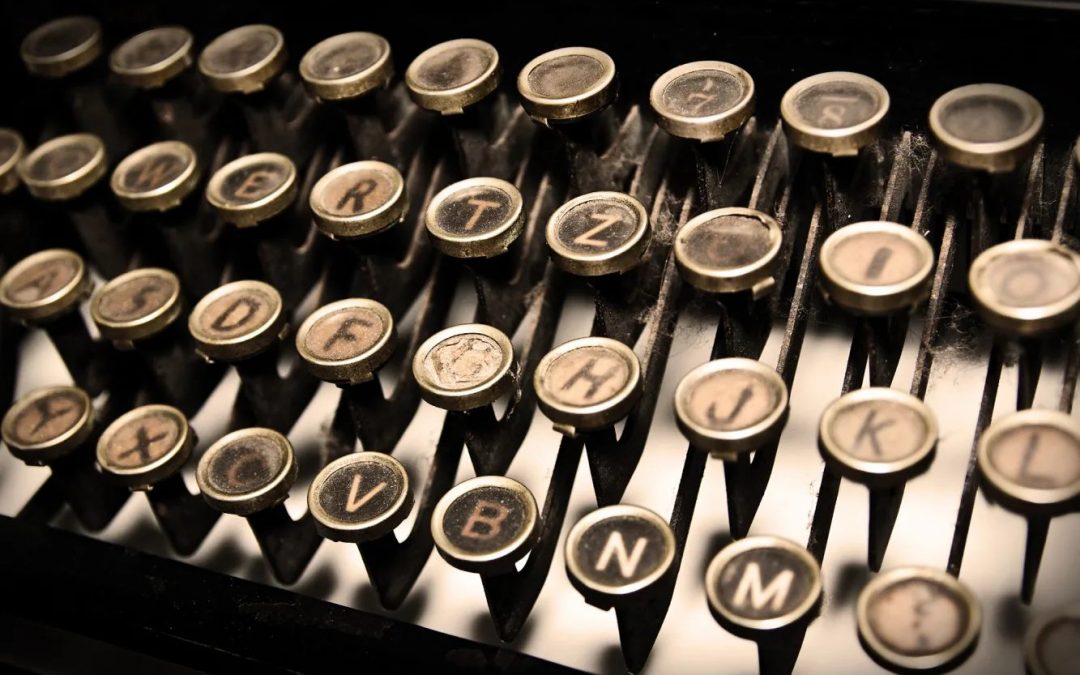
by Gene Turnbow | Nov 4, 2025 | Books, Writing
I keep hearing this trope about how your characters speak to you and have minds of their own. I never understood this.
As a writer, I either know what my characters should be doing, and where my story is supposed to be going and why, and the emotional notes I want to hit and why, and then I make them do what I want.
And If I can’t, it means I haven’t thought things through properly, or worked out enough of the back story for my characters, so I go back and do the missing work. I’m never surprised by what my characters do in my stories. They are as I write them.

by Gene Turnbow | Oct 11, 2025 | Books, Business, Writing
This is just sort of a grab bag of stuff I learned while publishing my first book, Juniper Fairchild and the Alterwhere. This advice applies to both indie authors and operators of small press.
Know Your Genre. Read.
Read everything. It’s great if you know the classics, but read the new stuff. Learn how to build your stories so that they fit in the formats your anticipated audience will expect to see.
Do not write a 600 page doorstop as your first book. You can do that later if you get popular. Likewise, do not write a pamphlet and present it as a book and expect to be taken seriously.
Organize Everything
People who say they write by the seat of their pants aren’t telling you the whole truth: sooner or later you have to make an outline, and you have to fit what you’ve written into that outline, or you haven’t got a book. It’s better to plan things out, then write. Authors who can write straight ahead are those who are so skilled that they can do the planning part in their heads without writing it down. You are not one of those writers.
ISBN Numbers
You should buy a batch of ISBN numbers from Bowker. Don’t buy them one at a time. Each version of your book will need a separate one, and by the time you’ve used three, you might as well have bought the ten pack.
Do not buy ISBN numbers from anyone else. They’re lying to you when they say they can sell you one. ISBN numbes are not transferrable, and Bowker is the only source.
Do NOT pay the extra $25 for a barcode from Bowker. Bar codes are automatically generated by both KDP and Ingram Spark and applied to your book cover for you, so you never have to fuss with it, and you get those bar codes for free.
If the only place you will ever publish your book is Amazon, then you do not need an ISBN number at all, they can supply you with one (but because they actually own that ISBN number and not you, you cannot use the ISBN number you get from them anywhere but on Amazon).
If you’re Canadian, don’t buy your ISBN number from anybody. Get an account with Library & Archives Canada, which will issue you a batch of ISBN numbers for free. Follow this link to find out what you need to know.
Copyrights
File for a copyright for your work. It only costs $45, and you can’t necessarily rely on your publisher to do it for you, even if they’re contractually obligated to do it, because publishers are human at best, and people forget things. If you’re publishing your own work, there’s no excuse not to. If you run your own publishing company, encourage your authors to do it themselves and show them how. Authors owning their own copyright is a powerful thing.
Library of Congress Numbers (LCCN) – Getting into Libraries
To get your book into libraries, you’ll likely want to take the extra step of getting your book registered with the Library of Congress, and that means sending them two physical copies of your book. In return, you get an LCCN, a Library of Congress Control Number. That number, when used by other libraries, provides access to other important information about your book.
Do you have to have an LCCN to publish? No.
Can you get into bookstores without one? Yes.
However, all the best books, and every book published by the Big Five, have LCCN’s. If you want to be taken seriously, an LCCN is advised, and people expect to see it on your copyright page. Your opinion on this may differ from mine, but I think it skipping this would be like going to a dinner party in a tuxedo jacket and bermuda shorts, or in a cocktail dress and beach sandals.
Getting Into Bookstores
It’s easier than you think. You just have to go through all the steps.
If you want to get your book into libraries and bookstores, you will have to publish either through Barnes & Noble Press, or Ingram Spark. There is no point in doing both. Either of them will ask you for an ISBN number and will not provide one to you.
Once you are listed on either of these services, though, any bookstore in the world and any library in the world will be able to order your book. If your book is listed on Ingram Spark, it will automatically also be listed on Barnes & Noble. I walked into a local Barnes & Noble, introduced myself, showed them my book, and they ordered from Barnes & Noble on the spot.
Don’t Do Your Interior Design in Word. Just… don’t.
Don’t submit the interior design of your book as a Word document. I know they all accept that format, but don’t do it. For a good interior design, you will want pixel accurate control. You’re not getting that from a Word document. Use Atticus, or Adobe InDesign to output a PDF file.
Ingram Spark versus Amazon KDP
Both Ingram Spark and Amazon allow you to update both your cover and your content, but only Amazon lets you do that for free after publication. Ingram Spark lets you do it but only up to 60 days after initial submission. After that, they’ll charge you $25 each time you do it. Get it right the first time if you can.
Do not assume that you can upload changes to either service and have those changes propagate to books already in the printing pipeline. They can’t just yank content and replace it on the fly. Printing pipelines are enormous machines, and once you load up the books’ content and press “go”, that’s it. It goes into the machine and comes out as a book. The machine cannot be interrupted or opened while it’s running. Any changes you make will apply to the next batch, not any currently running batches.
I have watched videos where self-published authors have gotten their knickers all atwist because they tried to make last minute changes after orders were already in the pipeline and they did not understand that it wasn’t that Ingram Spark WOULD not help them, it’s that they COULD not help them.
Be aware that KDP uses a different coating on their matte cover stock for the covers than Ingram Spark does. Ingram Spark’s cover coating results in deeper, richer colors. The difference is noticeable, but only when you’re holding examples side by side in your hands. You’ll never notice the difference otherwise.
Wrapup
I hope this list of tips and tricks is useful. I learned it all by trial and error and doing my own research. I was surprised to find that nobody had ever assembled these tips together on a single page before, so may this list short circuit your journey and make your life as a published author somewhat less of a struggle.
–Gene

by Gene Turnbow | May 14, 2025 | Books, Business, Writing
I’ve finished the third draft, and still frankly doing little tweaks here and there. I’ve learned that most agents, if not all of them, request the first three chapters of the book to read when you submit a query, so I’ve been polishing. A word here, a phrase there, suddenly it all seems to have outsized importance. And then, of course, it makes me want to go through the entire book and do that to every chapter.
When I’m alone with my thoughts, when I’m writing the story, that’s the sweetest, most engaging part of the entire process, but now I’m faced with having to do the one thing I’ve never ever been good at, the one thing that terrifies me more than anything else I’ve ever done in my entire life that didn’t involve doing something like playing electric guitar and singing on stage, solo, in front of an auditorium filled with my high school peers and their parents (this was when I was 17), encountering a band of thieves in my own home, led by someone I thought was my best friend (this happened when I was nineteen), or diving in the driver’s side window of my mother’s borrowed car to grab the emergency brake as it was about to dive off a cliff off the end of a pier into the Pacific Ocean (this happened when I was twenty), or having to pull over to blow out an engine fire on my way to work and then get back in the car and drive the rest of the way to work (this happened when I was 40).
I have to sell an agent on the idea of representing my book to a publisher.
I’m terrible at salesmanship. Throughout my life, any time I’ve been confronted with having to do it, it’s always been a horrible experience and I’ve failed at it miserably. But this time I can’t afford to fail, because the rest of my career as a writer depends on my being able to pull just one more miracle out of that dark secret place in the back of my trousers where flying monkeys come from.
I’m doing all the things I think I’m supposed to. I’ve gotten myself an annual membership on QueryTracker, which is a web site meant to help you find agents and keep track of whom you’ve submitted to and what they said, or didn’t say, afterwards. I’m considering entering BookPipeline’s unpublished author’s contest. To be honest, though, I have no idea if that’s a good idea, or if it would help me in the slightest. They don’t even start judging until September, and that seems a very long time from now, and I’m impatient to get started pitching agents.
I’m told that I need to start working on my next book while I work on selling this one, because the publishing industry runs at the speed of books, which is to say, not very speedy at all. Even if I get an agent right away, which isn’t terribly likely, I might see my seventieth birthday before the book is published, assuming it ever gets there. This prospect does not fill me with confidence. I’m sixty-eight now. I don’t want my life to go by while I wait to see if I get to be a real writer. Frankly, the odds aren’t good.
I will tell you something, though. The reason most people fail at getting an agent is that their work isn’t finished before they submit their queries, or they query the wrong agents because they haven’t done any research, or they can’t follow simple instructions given them by the agents. Frequently they just have no idea how writing a novel works, and have written something unreadable, and their books are nowhere near where they need to be to submit. Your book doesn’t have to be in its final, polished, perfect form, but it needs to be as good as you can make it, and it should have been through the hands of a professional editor before you submit (mine now has). The odds of my getting an agent are probably far, far better than I believe they are, because most of the field is just self-disqualifiying.
Now that my manuscript is finished, the real adventure begins.
Wish me luck.





Recent Comments